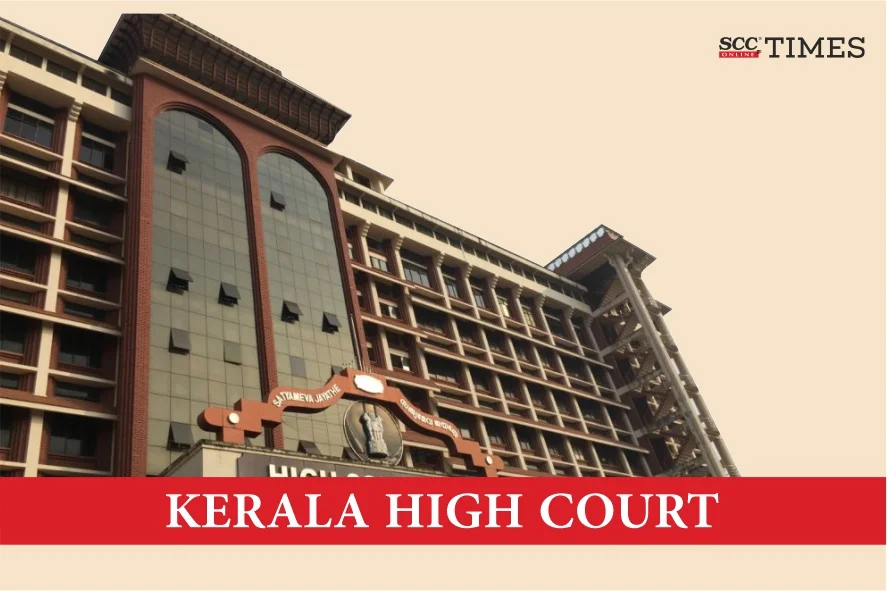Kerala High Court: In a petition filed in public interest, by a resident of Kalpeni Island in the Union Territory of Lakshadweep, challenging the office order dated 14-05-2025, issued by the Director of Education, Union Territory of Lakshadweep, regarding the implementation of the Three Language Formula (‘TLF’) from Standard I onwards, excluding Mahal and Arabic as optional subjects, the division bench of Nitin Jamdar, C.J.* and Basant Balaji, J. stayed the enforcement of the directive that removed Arabic and Mahal as third-language options from the school curriculum in the Union Territory.
Background
The Petitioner had challenged the decision of the Director of Education, alleging it was taken hastily and without stakeholder consultation or any study on its impact on Lakshadweep’s education system and cultural identity, particularly in Minicoy. The Petitioner argued that Arabic/Mahal had been offered as a third language for over seventy years and that Mahal held distinct cultural importance in Minicoy. It was contended that the change was effected merely through an office order, without justification.
When the petition was first heard on 3-06-2025, the Court directed the respondents to clarify whether any study or consultation had preceded the change. On 5-06-2025, the petition was admitted, and a rule was issued. An interim order was passed deferring the office order dated 14 —05-2025, considering that schools were set to reopen on 9 June. Later that day, the respondent stated that the new language policy would be implemented from 1-07-2025, and the matter was posted for further hearing as petitioner’s counsel was unavailable.
Analysis and Decision
The Court was informed that, in the previous academic year, the Union Territory had attempted to extend the CBSE pattern to all schools in Lakshadweep, but this move had been challenged in two writ petitions, where the directive was stayed and proceedings were still pending.
The Court observed that it typically refrains from interfering in education policy matters, especially concerning language choices in curricula. However, it emphasised that such deference is grounded in the expectation that policy decisions are made following thorough study and broad stakeholder consultation.
The Court observed that the impugned order provided no specific reasoning, apart from citing the National Education Policy (NEP) 2020. NEP 2020, placed on record, emphasised foundational literacy, multilingualism, and flexibility in the implementation of the Three-Language Formula, with decisions left to the States, regions, and students, ensuring at least two of the three languages are Indian. It underscored the cultural and educational value of native language instruction and emphasised that successful implementation would require coordinated action among various bodies to uphold the policy’s spirit and intent.
The Court noted that the CBSE circular presented by the respondents did not specify any mandated language choices. The Court found prima facie merit in the petitioner’s argument that implementing the National Education Policy in a specific region requires careful consideration and a study of local conditions to serve the community’s educational interests effectively. The Policy itself calls for such contextual application, recognizing that multiple factors influence language selection.
The petitioner emphasised the cultural importance of language, arguing that sudden changes could have serious consequences. It was highlighted that 26 out of 34 schools in Lakshadweep are affiliated with SCERT, Kerala, where Arabic is prescribed at the secondary level under the Kerala Education Rules, 1959, and the Kerala Curriculum Framework. The petitioner further pointed out that Arabic and the Kerala education pattern have long been integrated with the region’s cultural and educational fabric, and that Arabic is also an optional subject under the CBSE curriculum.
The Court noted that it had specifically directed the respondent Administration to submit any material indicating application of mind before issuing the impugned office order. However, no such material was produced to demonstrate that the NEP was applied in light of the unique conditions in the Lakshadweep islands. The Court observed that the directive, issued as a mere office order, lacked any rationale or explanation for changing a practice that had been in place for seventy years.
Given these circumstances, the Court found that the petitioner had made out a prima facie case showing that the order was issued without any study or stakeholder consultation. It confirmed that the interim stay on the office order dated 14-05-2025 would remain in force, and the existing language policy would continue across schools in Lakshadweep.
The Court added that the Union Territory is at liberty to conduct a genuine study of local conditions and engage in meaningful consultation with stakeholders. If such steps are taken, the respondents may seek appropriate directions, which the Court will consider on merits.
[Ajas Akber P I v. Union Territory of Lakshadweep, WP(PIL) NO. 48 OF 2025(S), decided on 09-06-2025]
*Judgment Authored by: Chief Justice Nitin Jamdar







